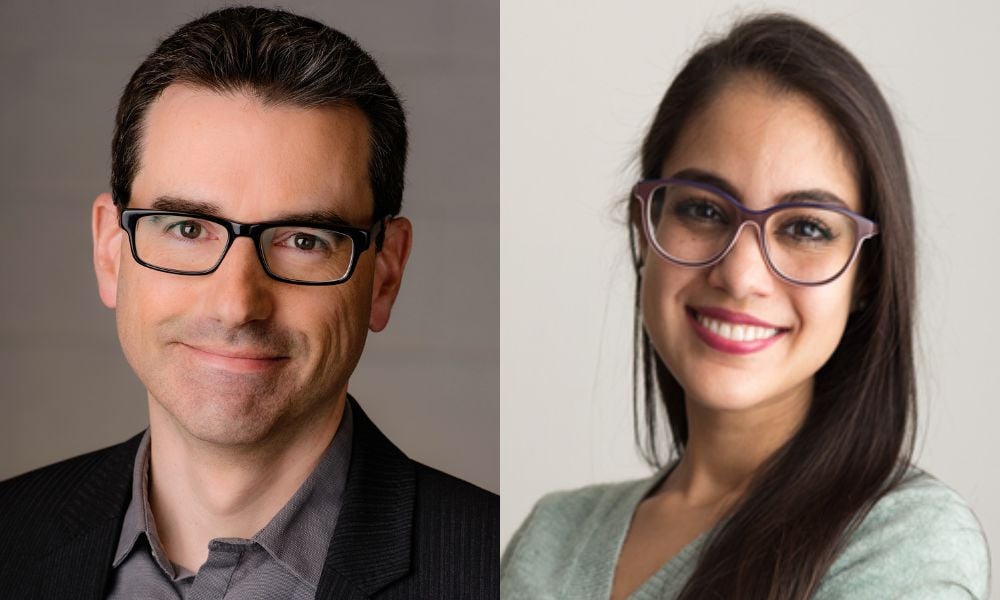
Last October, Lawyers Without Borders celebrated 20 years in operation

In 2004, Pascal Paradis left McCarthy Tétrault, where he was a partner doing M&A work. Two years before, he and two other lawyers had started Avocats sans frontières Canada (Lawyers Without Borders Canada), and Paradis decided to make it his full-time job.
At the time, the NGO had $1,000 in the bank, no phone, no computer, and no staff. For the first five years, Paradis ran the organization out of his Quebec City apartment. Twenty years later, Avocats sans frontières Canada has built a portfolio of 52 projects worth over $170 million and has 150 full-time staff working in eight offices in Africa, Latin America, Haiti, and Canada. It has 135 partner organizations which provide between $15 and $20 million per year for programming.
Avocats sans frontières Canada provides access to justice for victims and vulnerable people worldwide by building capacity within local communities and training local lawyers and other professionals to manage and fight human rights cases. Their focus is on “strategic litigation of emblematic cases,” which, due to the systemic nature of the human rights violations and the kinds of perpetrators and victims, “have the potential to change the jurisprudence, to change the society,” says Paradis.
Their first significant win, he says, came in 2003 in the case of Amina Lawal, a Nigerian woman who an Islamic Court sentenced to death-by-stoning for conceiving a child out of wedlock. When they heard about the case, Paradis’ colleague managed to find the email address of Lawal’s lawyer, who unexpectedly answered their query almost immediately. They asked how they could help.
The Avocats sans frontières team brought a constitutional argument concerning how the Islamic tribunals reintroduced in certain states in the north of the country worked within Nigeria’s constitutional system. A Sharia Court of Appeal overturned Lawal’s conviction, and her case marked the end of death sentences and corporal punishment administered according to Islamic Law in Northern Nigeria, says Paradis.
Since then, Avocats sans frontières Canada has worked with local partners to litigate cases of gross human rights abuses, crimes against humanity, war crimes, torture, systemic sexual violence, and forced disappearances. It has also assisted in peace processes and truth and reconciliation commissions.
“It is really law, as a powerful tool for change when it is brought into the hands of those who most deserve to use it, the most discriminated, the most excluded, the poorest among our society,” says Paradis.
Ana Elisa Samayoa is a human rights lawyer at Avocats sans frontières Canada’s Guatemala City office. She worked on a project involving human trafficking in Guatemala, El Salvador, and Honduras, which resulted in significant systemic change.
Due to the complexity of the crime, the authorities were only prosecuting cases against low-level parties loosely involved in human trafficking, which meant impunity for the facilitating criminal organizations. Samayoa and her organization’s partners worked with the judiciary, district attorneys, and social and civil organizations representing victims.
“As a result of our work with the district attorneys, they created a special unit for criminal organizations,” says Samayoa. “Now they’re investigating criminal organizations that commit human trafficking, and not just individuals that commit the crime that are at the end of the chain.”
Through their work with the judiciary, they created specialized courts for human trafficking. “This is a one-of-a-kind court in Latin America,” she says. “We did a lot of training with the judges, so they can know the complex nature of human trafficking. And as they’re specialized, we now have more rulings of human trafficking.”
Avocats sans frontières Canada also assists organizations working with victims to provide pro-bono services, says Samayoa.
“As a result of this human trafficking project, a lot of victims in Honduras, Guatemala and El Salvador had access to legal representation that they may not have had if that project didn’t exist in the first place,” she says. “So, if you ask me, as a human rights lawyer, that’s one of the best things that we do. It’s one of the things that inspires me the most, getting justice closer to victims in contexts of impunity and contexts where justice becomes a privilege.”
Avocats sans frontières Canada has acted in several other high-profile cases in Guatemala.
They helped convict former dictator José Efraín Ríos Montt of genocide for causing the death of more than 200,000 people. They were involved in the convictions for crimes against humanity of five military members who perpetrated the Dos Erres massacre in which 200 civilians were tortured, raped, and murdered. They also helped convict military personnel and hold the Guatemalan state responsible for the sexual exploitation of Mayan women at the Sepur Zarco military base.